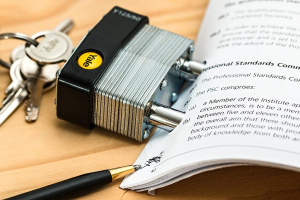Asset Protection Planners has in-house attorneys who can help you.
An asset protection attorney can be your experienced guide through the daunting process of setting up a asset protection plan to secure your wealth. Fortunately, you don’t have to go through it alone. There are legal professionals in-house who you can call right now to help you create your plan. This organization establishes asset protection plans for many clients in the US and worldwide. As such, our on staff asset protection attorneys can help you understand the best asset protection plan for you. They can explain how you can utilize it and can help you make the most out of your strategy. Then, taking action on what you learn will help you to protect yourself, your family, and your business.
Need an asset protection attorney right now, or have questions? There are numbers on this web page that you can call and an inquiry form you can complete in order to discuss your needs. Alternatively, you can speak with a professional asset protection planner. They can review your situation and, if needed, connect you with one of our on-staff, in-house asset protection attorneys.
Asset Protection Planning
The first step to understanding what such a plan is and what an asset protection attorney does is to define asset protection. Investopedia’s asset protection definition explains that it is a component of financial planning for guarding one’s wealth from the claims of creditors. So, the goal of asset protection is to protect wealth, property, and other assets so that creditors could otherwise seize. Both individuals and companies can use asset protection strategies. These strategies include legal tools to help limit creditor access to valuable assets and properties.
Asset protection planning might seem like something only for the super wealthy. However, Elder Law explains that a lawsuit can really strike anyone. Lawsuits can come from a variety of places, including car accidents, credit card debt, foreclosures, unhappy customers, and more. Losing a legal dispute – and sometimes just facing the process – could cripple your finances, leaving you bankrupt in the end.
The Ideal Time to Act
Now, an asset protection plan should ideally begin before a lawsuit arises. That because the law makes it more difficult to block current creditors from accessing assets, and implementing protective measures in the middle of a lawsuit. There are ways to protect yourself after someone sues you but it is best to do so beforehand. Why? Courts can reverse the transfer of many assets into protected accounts under the control of someone within their jurisdiction. That’s why it’s important to start creating your plan now – and enlist a qualified lawyer to help you through the process. Plus, if you are already in the thick of it, there are international trust structures that can keep the hands of creditors off of your hard-earned liquid assets.

Asset Protection Attorney Definition
An asset protection attorney is a lawyer with experience in helping clients find legal ways to protect their assets when lawsuits, bankruptcy, creditor claims, or other liabilities arise. This experience allows the attorneys to discuss the advantages and disadvantages of certain asset protection tools with their clients. Some of these tools, for example, include corporate structures, asset protection trusts, and retirement plans. So, we will discuss these items later in this article. These attorneys can give you legal advice that will help you make the most of your asset protection plan. In addition, they can help you keep it within the bounds of the law.
An asset protection attorney can go by many names, from broad to specific – estate lawyer, trust attorney, and more. Because of the sensitive and often complicated nature of asset protection, not every law firm has lawyers that specialize in it. In addition, there are laws and regulations specific to shielding certain assets from creditors. Thus, the attorney you choose must know these laws in order to help you create a long-term plan. They can also tell you many of the asset protection pros and cons.
The American Bar Association (ABA) suggests inquiring as to your attorney’s experience in handling estate plans. Membership in certain bar associations and organizations can show a certain level of dedication from your attorney. An example of one of these, in the form of a professional college, is the American College of Trust and Estate Counsel (ACTEC).

Why You Need One
Maybe you’ve already done some research into creating your asset protection plan. The problem is that some people think they can do it themselves. That is, if one type of trust protects assets, all trusts protect assets. This is far from the truth. Your opposing attorney is determined to poke holes in your legal strategy.
So, that is why it is so important to enlist the help of a legal professional. Trying to wing it may seem tempting in lieu of the legal fees associated with an attorney. But you should seriously consider the ramifications down the road when you do something wrong. Perhaps you put the wrong asset in the wrong legal tool. Perhaps you tool you employ is not the proper legal tool at all. It will be much, much more costly in the long run. That is because you could then face a legal dispute and assets seizures that drain those very assets you meant to protect.
The American Bar Association reminds anyone looking to protect their assets that only a qualified estate lawyer can best interpret the laws. There are laws that exist around property rights, taxes, wills, probate, and trusts. A DIY asset protection kit doesn’t provide someone who makes sure that everything is filled out right. Thus, a professional can help see to it that the assets are properly handled, assess state laws, and address key personal needs. Therefore, if money is the only reason you’re looking at such kits, save money instead on hourly legal fees by coming to the table prepared.

Asset Protection Prep Work
When you’re ready to start creating your plan, Investment News has a few suggestions on how to get ready for your meeting. It is essential to know your goals before talking to an attorney or financial planner about your asset protection strategies. The attorney will typically analyze your financial status, see which assets he can protect or transfer, and whether you expect your financial situation to change. Be prepared to be honest about any potential litigation coming up that you know of. Think about how much time and effort you can put into creating your plan and maintaining it. Then, decide how comfortable you are placing assets in various legal tools and utilizing strategies that rely on licensed trustees.
Once you have considered the above, gather copies of any important asset documentation, from housing deeds to bank statements. Then, do some research to find an attorney that specializes in asset protection. You can fill out a free consultation form on this page so we can help. It’s important to understand that protecting your assets is not a quick “one and done” process. Sure, it will take time and money. But the more upfront and thorough you are with the professionals helping you, the more you will get out of the process.

First Meeting
Once you’ve chosen an attorney to start working with, there are a few final things you can do to prepare for the first meeting. Professional Family Lawyer offers a few tips for this. First, call the office of the lawyer you have chosen. This initial phone call can be a good way to screen the office to see if they are a fit. Do the offices have live people answering the phone or do they use machines? That can indicate that they will quickly answer your future questions and are easy to get a hold of. Another indicator of easy accessibility is if the attorney has an emergency or after-hours number for clients to call.
What to Expect
Once you get a hold of someone, make sure to ask about what to expect in the initial meeting. Ask whether or not there will be a charge. If there is a charge, don’t immediately reject that lawyer, however. A paid meeting can sometimes provide you with more information about asset protection than a free consultation. Knowing there is a charge upfront prompts you to get better prepared for the meeting. During the meeting, itself, be sure to discuss the long term legal fees and costs associated with your protection plan. Whereas most states don’t require a written financial agreement, it’s a good idea for you to request one. The ACTEC website includes model engagement letters to help you prepare in this aspect.
The first meeting with your lawyer should provide you with a chance to get to know him or her. Additionally, it can educate you and him or her on how best to handle your specific case. You want to be able to leave the meeting with a clear idea of what the next steps are for you, your family, and your business. If you don’t hang up from the initial meeting with that feeling, that attorney might not be right for you.

The Protection Continuum
To get a better idea of how to decide what to do, the lowest tier of asset protection may include buying a homeowners or auto insurance policy. Altering the deductible and coverage level helps you create the right coverage for your personal or business property. Moving up in the asset protection continuum could include setting up a limited liability company (LLC) or corporation. An LLC may provide protection for rental property or other real estate. A corporation can own your business. The protection of an LLC or corporation comes from protecting your identity, separating you from your asset in the eyes of the creditor. Plus, it could be a good idea at this level to set up a life insurance trust to protect the cash value of your life insurance policy. A powerful strategy further up on the continuum often includes creating an asset protection trust.
Along the continuum, an individual’s needs will differ from that of a company. One very important factor is the state or country where you form your asset protection strategy. Is it in a jurisdiction that offers the strongest protection? This may or may not be in the same state or country in which you live. Cook Islands and Nevis offer some of the strongest asset protection statutes on the planet. What provisions will you include? Who are trustees and beneficiaries? These issues will determine what coverage you need. Discussing your goals with your attorney and your financial planner helps ensure you get the right coverage.
Conclusion
A final thing to note with asset protection and your attorney is that there is no “one size fits all” plan. Asset protection operates on a continuum, varying in complexity and coverage based on the individual or company’s need. Like any profession, with attorneys, There are good and bad ones. In an article on this subject for the ABA attorneys discuss how understanding this helps both client and lawyer come to the right plan. Where you lie on the continuum depends on your perception of your current risk, the cost and complexity of the steps, and the cost/benefit tradeoff of each measure.
Feel free to give us a call at the number above. You can also complete a consultation form on this page.



